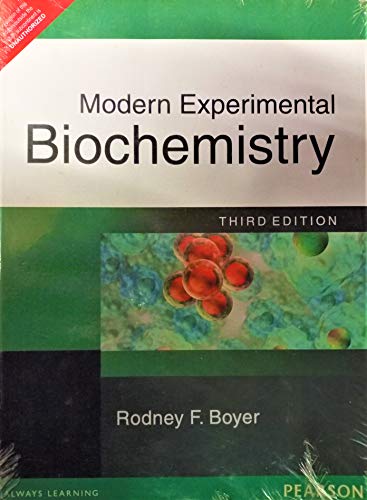
Concepts Biochemistry Rodney Boyer Pdf To Doc
© 2003 by The International Union of Biochemistry and Molecular Biology Printed in U.S.A. BIOCHEMISTRY MOLECULAR BIOLOGY EDUCATION Vol. 102–105, 2003 AND Articles Concepts and Skills in the Biochemistry/Molecular Biology Lab Received for publication, October 23, 2002, and in revised form, November 16, 2002 Rodney Boyer‡ From Bozeman, Montana 59715 Most colleges and universities throughout the world now offer a Biochemistry/Molecular Biology (BMB) lab course that is designed for undergraduate students in the molecular life sciences, chemistry, and related fields. To best serve our students, we must introduce them to the most current concepts, skills, and methods available. Suggestions for teaching a modern BMB lab are given here. Keywords: Laboratory skills, biochemistry lab, molecular biology lab, education. The Biochemistry/Molecular Biology (BMB)1 teaching laboratory has become a prominent and essential fixture in the training of undergraduate students for careers related to the molecular life sciences (biochemistry, molecular biology, chemistry, genetics, immunology, microbiology, neurochemistry, etc.).
Concepts in Biochemistry, 3rd Edition, Rodney F, Boyer, Test Bank Engineering Mathematics, 4th Edition, John Bird, Solution Manual Financial Accounting, 1st Edition 2007, Jones, Solutions Manual. Articles Concepts and Skills in the Biochemistry/Molecular Biology Lab Received for publication, October 23, 2002, and in revised form, November 16, 2002 Rodney Boyer‡ From Bozeman, Montana 59715 Most colleges and universities throughout the world now offer a Biochemistry/Molecular Biology (BMB) lab course that is designed for undergraduate.
These students must acquire extensive experience working with biomolecules in the laboratory, and a formal lab course is usually the best first step to that experience. This step provides students the skills needed for future research participation at the undergraduate and graduate level and for jobs in the biotechnological and pharmaceutical industries. Directional antenna wifi. In addition, a lab experience is also an asset for those science majors preparing for careers in law and business that may be related but outside the realm of the basic sciences (patent law, pharmaceutical sales, etc.).
With the acknowledged importance of a lab experience for all students, it is surprising that there is such a sparsity of literature references with discussion on the elements that make up an effective BMB laboratory experience. For example, what technical skills and procedures must be practiced and mastered by students? What teaching modes work best to most effectively train students in the lab? What instrumentation should undergraduate students become familiar with? What is the importance of the “other lab skills” such as communication (written and oral), teamwork, ethics, fairness, and responsibility? In this discussion I will not be able to provide completely satisfying answers to all these questions, but hopefully I will be able to provide insight and food for future thought.
BMB LABS OF THE PAST AND PRESENT The standard approach to teaching the BMB lab, for many years, has been to: ‡ To whom correspondence should be addressed. E-mail: 1 The abbreviations used are: BMB, Biochemistry/Molecular Biology; MS, mass spectrometry; ASBMB, American Society for Biochemistry and Molecular Biology; HPLC, high pressure liquid chromatography. Select appropriate experiments from a textbook adopted for the class (Refs. 1– 4 for current lab books), or 2. Utilize a set of self-designed experiments, or 3. Choose projects published in the biochemical education journals Biochemistry and Molecular Biology Education (BAMBED) and The Journal of Chemical Education (JCE). These three options have provided instructors the opportunity to select lab activities that emphasize certain desirable biochemical principles, techniques, and skills and those methods that are compatible with the instructor’s background/expertise and with the institution’s instrumentation and facilities [5, 6].

Kak snyatj radiator pechki na mersedes vito 638. However, major changes are now occurring in biochemistry and molecular biology, and these changes require that we adopt new instructional methods in the classroom and teaching lab [7, 8]. For example, the recent advent of bioinformatics, the merging of computer science with biology, is transforming the way we investigate protein structure and function as we can now obtain important information from databases and thus avoid days of “wet” work in the lab [9]. To facilitate the necessary changes in BMB education, Bell [7] suggests that we invoke the research paradigm that “Undergraduate courses should have investigative labs with realistic expectations about student involvement in experimental design, data analysis, and data interpretation.” While this approach may be desirable for those students who will later attend science graduate school, some instructors may prefer a more skillbased lab program for the average student.